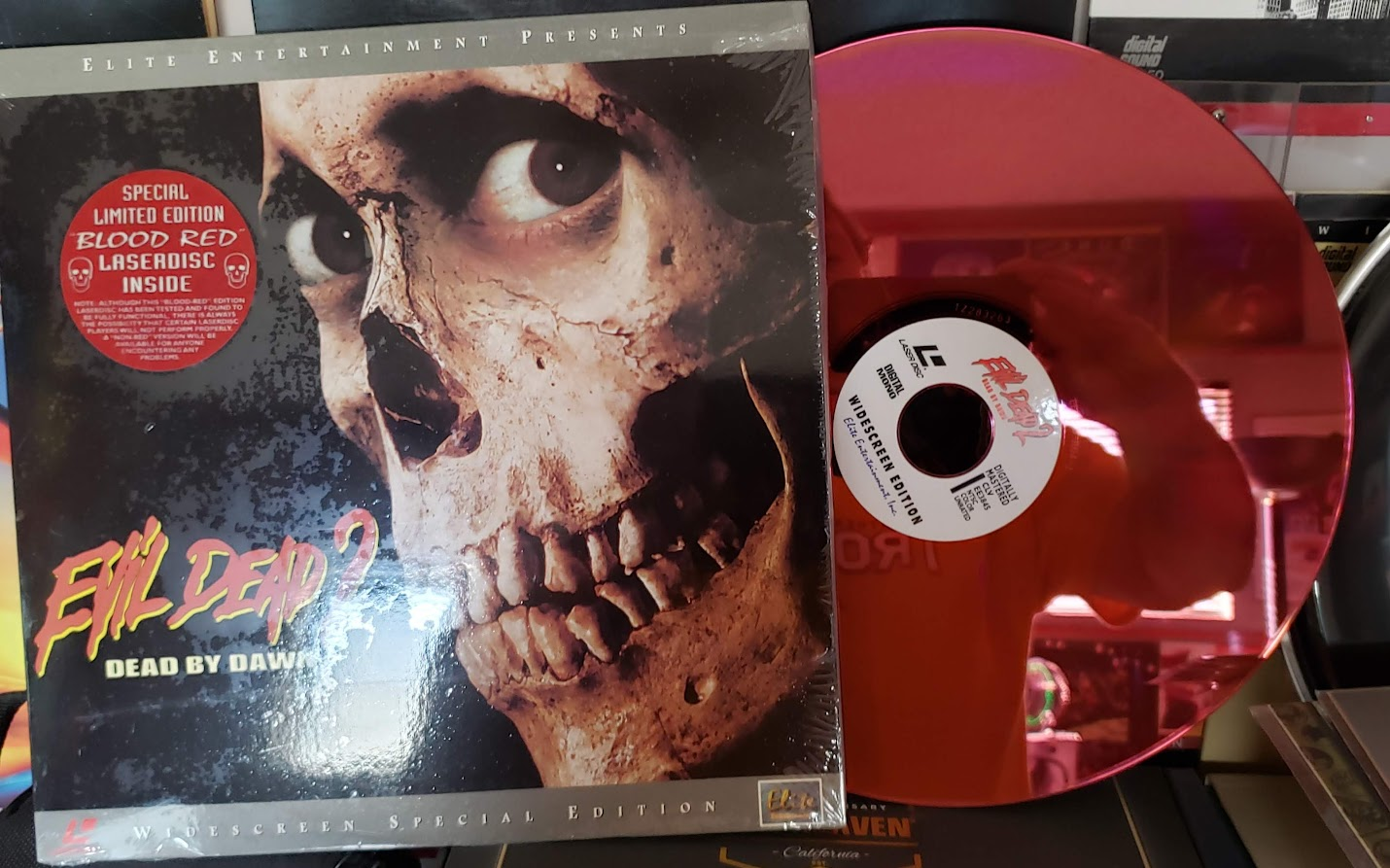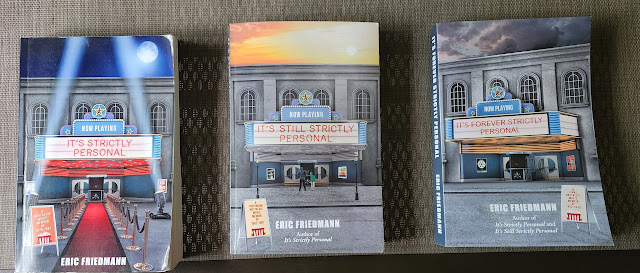Saturday, April 8, 2023
Air (2023)
Thursday, April 6, 2023
KAMAD Throwback Thursdays 1975: Mitchell
Throwback Thursday #TBT
Throwback Thursday on the KAMAD site will be a regular occurrence in the next year. As a motivational project, to make sure I am working on something, even in a week where I don't see a new film in a theater, I am going to post on movies from 1975. Along with 1984, this is one of my favorite years for movies and it is full of bittersweet memories as well. 1975 was my Senior Year in High School and my Freshman Year in College. The greatest film of the last 60 years came out in 1975, as well as dozens of great and not so great cinematic endeavors. Most of the films in this weekly series will have been seen in a theater in 1975, but there are several that I only caught up with later. I hope you all enjoy.
Mitchell
Wednesday, April 5, 2023
Evil Dead 2: Dead by Dawn
Sunday, April 2, 2023
Spinning Gold
Friday, March 31, 2023
Dungeons & Dragons: Honor Among Thieves
Thursday, March 30, 2023
KAMAD Throwback Thursdays 1975 "The Great Waldo Pepper"
Throwback Thursday #TBT
Throwback Thursday on the KAMAD site will be a regular occurrence in the next year. As a motivational project, to make sure I am working on something, even in a week where I don't see a new film in a theater, I am going to post on movies from 1975. Along with 1984, this is one of my favorite years for movies and it is full of bittersweet memories as well. 1975 was my Senior Year in High School and my Freshman Year in College. The greatest film of the last 60 years came out in 1975, as well as dozens of great and not so great cinematic endeavors. Most of the films in this weekly series will have been seen in a theater in 1975, but there are several that I only caught up with later. I hope you all enjoy.
The Great Waldo Pepper
Wednesday, March 29, 2023
It's Forever Strictly Personal: A Book Review
This entry in his series of "Strictly Personal" books, focuses on the films of the 1990s, particularly 92 to 99. In his personal biography, this is the era right after he has finished college and is searching for a job in a field that sounds like it is his fallback career. Eric Friedman has the ambition that a lot of film fans do, of actually being part of the industry, and in his case, doing so by screenwriting. In his entry on "The Player" from 1992, he strongly identifies with the frustrated writer who has been told once too often, "I'll get back to you", never to hear from the person again. This seems like the right film to connect to this frustration because the writer dies, the executive gets away with murder, and the story in the film gets swallowed up by the production machine and does not resemble what was written in the first place. These are the kinds of stories that you will find throughout the book. There are parallels to the author's life in the films that he is writing about. If there is one thing that could have enhanced these chapters when they come up, it would be some details about the pitches Eric made when he had the chance, or maybe some pages from one of the screenplays that he wrote. Those would give us a greater sense of how his career aspirations connected with the industry elements he encountered.
Just as often however, the focus of Eric's movie stories is not on a potential screenwriting career, but on those personal demons we all face. Sometimes we indulge in a little schadenfreude, when someone who disappoints us, gets disappointed in return. He freely admits that he has carried a torch for someone, long after the relationship was over. It feels at times that he is writing his own version of a Woody Allen screenplay when he repeatedly makes an effort to keep that relationship going, frequently by connecting through a movie. At times he recognizes that the object of affection does not relate to the film the same way he does, but he only sees the red flags later. Twenty-five plus years after some of these events, this journey of self discovery is likely to be more honest and accurate than if it had been written at the time. I did enjoy reading about those moments when a film was an escape from his own thoughts. Richard Kimble, searching for a one armed man becomes a block on his internal monologue, at least for two hours, and I'm sure film fans can relate to that.
The book is organized around the films of an individual year, and the discussion of the films he has chosen to write about, is often connected to an event in his life. In his previous volume "It's Still Strictly Personal", the dominating life subject was the on again off again marriage of his parents. In this edition of his life, the issues hang on his employment, heartbreak, and especially his love affair with a house at the beach. When his home was essentially denied to him by a coastal erosion problem, he sought an alternative that led to some great summers but not a meaningful relationship. He uses the Kenneth Branagh version of "Hamlet" as a reference point to the turmoil in his life, and the satisfaction of returning to the beach house is punctuated by his adoration of the film. Ironically, a completely different issue intrudes on his happiness, and it gets compounded by betrayal inside of his own family. Damn that Shakespeare was a good writer.
Like many books that reflect on film, and like way too many reviews I read on line, a large amount of energy is expended on recapping the story for us. Sometimes this is necessary because a film may be esoteric or unfamiliar to the reader. I can get behind a two page reworking of "Lost Highway", a film I saw once and it was strange to begin with. I don't know that as many people will need the recap of "The Matrix" or "Goldeneye". Of the seventy or so films he writes about, I'd seen all except a dozen or so. When the plot or the performances is relevant to a point that he is making about his life, the recaps feel useful. It's probably the fact that some of the films are so familiar to me that makes the occasional long summary feel unnecessary. Of course your mileage may vary, so maybe it won't be an issue for you.
Be warned that the titles of his book series is honest and upfront disclosure. These are his opinions and he does not hold back. While acknowledging that different people may experience films through their own perspective, his expression of his own opinion is often hyperbolic. I myself find his dismissal of Cuba Gooding Jr. in "Jerry Maguire" to be a bit flip and a bit egocentric on his own opinion, but that's me. I would probably take him to task for his defense of "The Phantom Menace", but not with the venom that he sometimes releases on a poor film that was just sitting there. It is part of his style to go big, and in the right context, that feels appropriate. Readers who have experienced the films he is writing about and have had a different opinion, the climate for an understanding disagreement is not always favorable.
There are plenty of reasons to self disclose in an interpersonal relationship. You want to gain the trust of your partner, you want to influence them in a decision they are making, or maybe you are simply reciprocating a disclosure they have made. When writing a book, which could be read by people with whom you have no existing relationship, the reasons are going to be different. I think Eric gains a bit of catharsis by sharing a movie experience and how that played out in his life, especially his romantic life. Get the Carens out of your psyche and move on. Writing a book like this can also be an invitation to build on a relationship. So, if Eric wants people to continue to read his blog or other books, screenplays or essays that he generates, having shared his life with us will help us appreciate his other material. Revealing the personal is usually done in a proper time and sequence. Although the films in this book stand alone from the previous decades of his life, the personal stories are more interdependent. As such I would suggest reading "It's Strictly Personal" first, as a way of working up to the intimacy of this volume. The second book is a deeper dive into the personal, so "It's Still Strictly Personal" would be a proper next step. If you start with this third biographical enterprise, be prepared for some frank personal details that might be awkward out of context. I've been reading Eric's blog page for years and both of the earlier books went down smoothly. I was happy to have this third volume, but being prepared probably helped me react to it more positively.
Eric Friedmann can be proud of his accomplishment with this book. He has faced some of his weaknesses and overcome them with the help of a good movie. He generates some interesting thoughts on favorite directors like Woody Allen, David Lynch and Stanley Kubrick. Without hesitation he speaks his mind on the films and the people in his life. It may not always be comfortable, but it is always interesting, and of course, it is always Personal.
Eric was a Guest on the Lambcast Two Years ago, and you can hear our conversation at the link below. I hope to talk to him about his third book in the not too distant future.











